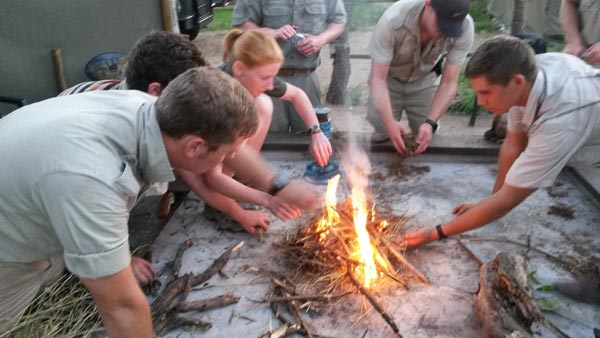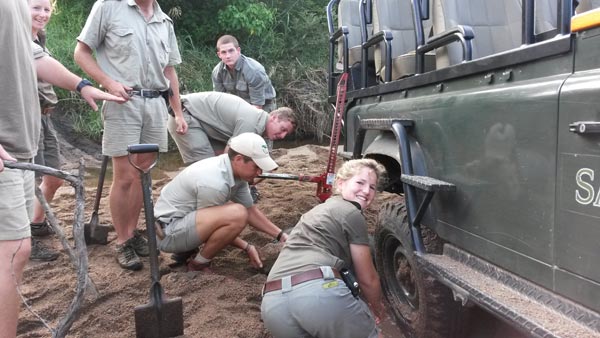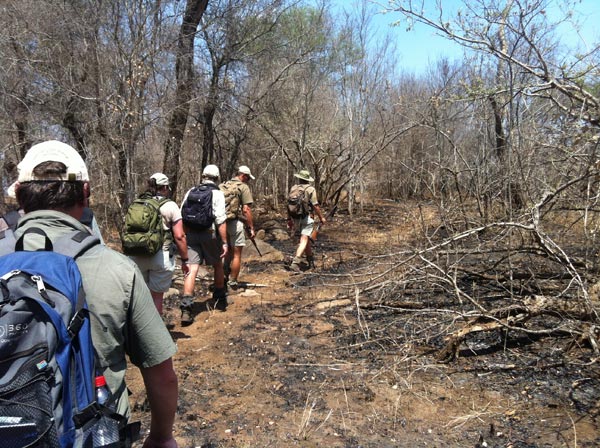What it takes to become a Sabi Sabi ranger
on Nov 24, 2014News update: 13th November
A love of animals and birdlife, the bushveld and the natural wilderness is so often inborn in South African children. A visit to Sabi Sabi very often cements these feelings into absolute ambition. Which keen youngster who has ever visited the bush doesn't want to become a ranger? The confident ranger in his khaki uniform with rifle in hand, the bush vehicle, the exciting tracking and finding animals, the awestruck guests all make this profession seem more than a bit glamourous and exciting. In reality life as a ranger is not just glamour and entertainment, explains Sabi Sabi Safari Manager and guiding stalwart, Andre van Zyl. This is a real career requiring very hard work and dedication.

Sabi Sabi has extremely stringent recruiting criteria (and subsequently excellent field guides). There is a lot of studying, determination and ongoing education for every ranger who eventually makes the grade, earning his or her field epaulettes.
A prospective applicant needs to have gained a minimum of a three or four year degree or diploma in Botany, Zoology or related science, accompanied by several FGASA (Field Guide Association of South Africa) qualifications. First Aid and Rifle Training are also a must ....and these are all just to get to the first personal interview.
It's at this point, says Andre, that the distinction starts being made between being simply a highly qualified candidate, and one who also has the right personality for the job. It is no good having a head full of knowledge and not being able to impart that information to the all-important audience, the guests. Rangers need to get on really well with people, be able to relate to a broad spectrum of visitors both local and international. Combined with this the ranger must have a good amount of world knowledge, be patient, be interesting, and captivate guests in order to instil in them an understanding of, and hopefully a lifelong love of the bush.

The first priority is safety and comfort, with rangers having to make the call when to approach, withdraw from, track or abandon a particular wildlife sighting. Although highly trained in first aid and rifle use, these are the last skills any ranger wants to call into use.
The relationship between ranger and tracker is also key. The trackers, most of whom have grown up in the areas surrounding Sabi Sabi, have an instinctive "feel" for the reserve and are so adept at finding animals. Working together the ranger/tracker team identify each guest's 'wish list' and embark on an exhilarating journey of discovery, trying to make as many wishes as possible come true. Part of the 5-Star safari experience and almost as important as tracking an elusive leopard or finding a herd of elephants is knowing when to stop for hot coffee or cool sundowners - taking a break to reflect on what has been seen, taking an interest in the visitors' country and background, letting the tracker talk about local folklore and legend - these are the skills that make the Sabi Sabi rangers legend.

The thousands of letters of praise, the emails and thank you cards received by the rangers, the friendships forged across the world are testament to the key role that rangers play in making a visit to Sabi Sabi such a memorable experience.






